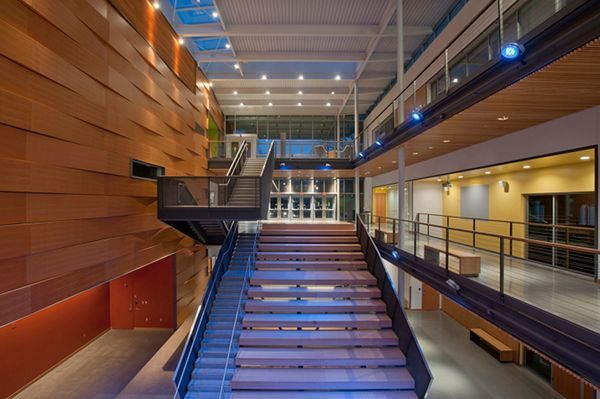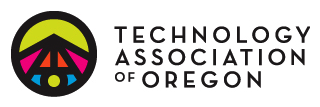
CollaborationFest!

GCCBOSC 2018 finished with CollaborationFest, a 2 (or 3 or 4) day collaborative work event where our communities gathered to contribute to bioinformatics software, documentation, training materials, and challenging analysis problems and use cases. If you are interested in learning and contributing in an intensely collaborative environment, then CollaborationFest is for you.
Preparing for CoFest
- Add or expand the cluster ideas document
- Add an introduction and indicate your preferred working clusters
- Ask questions on the Conference matrix channel
What's New: Core and Encore
Both BOSC/OBF and GCC have had collaborative events in the past. We'll be continuing these traditions, but also trying some new things this year:
- CollaborationFest will be after the conference instead of before it, allowing everyone to get oriented with potential projects at the Training days and conference.
- CollaborationFest will happen in two stages
- Friday & Saturday: CollaborationFest: Core:
- There will be lots of collaborative work, but also lots of learning about projects and software.
- Sunday & Monday: CollaborationFest: Encore
- The smaller of the two stages, these two days will focus on collaboration, collaboration, collaboration.
- Friday & Saturday: CollaborationFest: Core:
Three tracks: OBF, Galaxy-Dev, and Galaxy-DAT
CollaborationFest will have three tracks that will meet both jointly and separately:
- OBF: Contribute to any open source bioinformatics project. CollaborationFest is not Galaxy specific and we welcome anyone interested in open source projects. See last year's OpenBio Codefest for examples of projects.
- Galaxy development (Galaxy Dev): Learn how Galaxy and Galaxy code development works, and contribute to the Galaxy code base
- Galaxy documentation, analysis, and training (Galaxy DAT): Focus on expanding Galaxy community resources like training materials and documentation.
These three communities will be fluid and highly interactive with each other. There will be a joint gathering of all communities at least once a day.
Event goals, and who should attend
Anyone interested in contributing to open source bioinformatics projects is encouraged to attend. Newcomers are especially encouraged to attend. The goal of many collaborative work events is to produce code, period.
CollaborationFest's goals are much wider:
- Grow and foster the contributor community for open source bioinformatics projects.
- Extend, enhance, and otherwise improve open source bioinformatics code.
- Create, extend, and otherwise improve non-code objects, such as documentation and training materials.
Cluster early, cluster often
Clusters are groups of CollaborationFest participants that coalesce around shared interests and they address common challenges related to those interests. Clusters form before, at the beginning of, and throughout CollaborationFest. In fact, CollaborationFest can be thought of as a two (or four) day jam of Brownian motion where clusters form, interact, and exchange ideas and members with each other.
If you have an idea for a Cluster at ContributionFest then please send it to the CollaborationFest organizers. We'll post it here where CoFest participants can see it and then contact you. We recommend that clusters have a an online communications channel (like Matrix), and that you meet online at least once during the week or two before GCCBOSC starts.
Please note that many clusters will form during CollaborationFest. We encourage that. The clusters listed here will just have a head start.
JBrowse
JBrowse "is a fast, embeddable genome browser built completely with JavaScript and HTML5, with optional run-once data formatting tools written in Perl." JBrowse contributors (current *and future!)*will be gathering at CoFest to extend JBrowse's functionality and ecosystem.
Contact and Communications
- Contact Eric Yao and Rob Buels on the ...
- ... JBrowse Matrix channel
NIH Data Commons
The NIH Data Commons will be at CollaborationFest and working on integrating Data Commons efforts into open bioinformtics software. There is also interest in helping to develop training materials to help others integrate with and use the Data Commons. See this blog post from Titus Brown for background and goals of the Data Commons
Contact and Communications
Registration
CollaborationFest is free, for all 4 days. You still need to register (and select either 2, 3, or 4 days). You will need to cover some, and possibly all, of your meal expenses. Organizers will provide coffee / beverages throughout. We will attempt to get funding for as many lunches as possible.
You register for CollaborationFest at the same time you register for other GCCBOSC events.
Lodging
Lodging is available on the Reed campus, and throughout CollaborationFest, in the centrally located Old Dorm Block. If you are attending only CollaborationFest:Core then you can opt to stay in the Sitka Block instead. (Or, if you like moving, you can spend the first 2 nights in the Sitka Block, and then move to the Old Dorm Block for the last two nights, but that will cost you extra.)
Childcare
Childcare will be available during CollaborationFest:Core, but not during CollaborationFest:Encore. Space is very limited and you are encouraged to book childcare right now.
Venue
CollaborationFest will be at Reed College, the same location as other GCCBOSC 2018 events. CollaborationFest will take place in the Performing Arts Building, which features multiple meeting rooms, common spaces, and a unique 3 storey atrium that we will make maximal use of for gathering and collaborating.
CollaborationFest Organizers
- Brad Chapman, Harvard T.H. Chan School of Public Health
- Dannon Baker, Johns Hopkins University
- Jennifer Hillman-Jackson, Penn State University
- Frederik Coppens, VIB and ELIXIR Belgium
- Björn Grüning, University of Freiburg
- Christian Schudoma, Earlham Institute
Contact us at
- CollaborationFest 2018 Organizers cofest2018-org@lists.galaxyproject.org
CollaborationFest Sponsors
Peta Sponsors
Tera Sponsors
Giga Sponsors
CollaborationFest Sponsorship Opportunities
Interested in helping make this event happen? See the sponsorship page for options.

